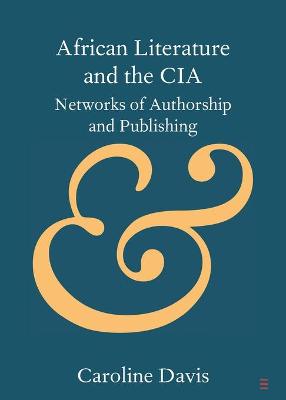Elements in Publishing and Book Culture
1 total work
During the period of decolonisation in Africa, the CIA covertly subsidised a number of African authors, editors and publishers as part of its anti-communist propaganda strategy. Managed by two front organisations, the Congress of Cultural Freedom and the Farfield Foundation, its Africa programme stretched across the continent. This Element unravels the hidden networks and associations underpinning African literary publishing in the 1960s; it evaluates the success of the CIA in secretly infiltrating and influencing African literary magazines and publishing firms, and examines the extent to which new circuits of cultural and literary power emerged. Based on new archival evidence relating to the Transcription Centre, The Classic and The New African, it includes case studies of Wole Soyinka, Nat Nakasa and Bessie Head, which assess how the authors' careers were affected by these transnational networks and also reveal how they challenged, subverted, and resisted external influence and control.
